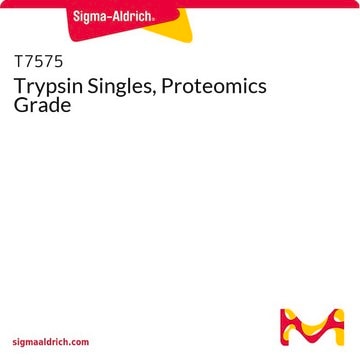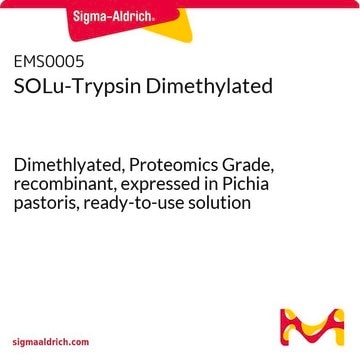EMS0007
Recombinant Trypsin Dimethlyated
Proteomics Grade, lyophilized powder, recombinant, expressed in Pichia pastoris
Synonym(s):
Dimethylated rTrypsin, Mass Spectrometry Trypsin, Proteomics grade rTrypsin
Sign Into View Organizational & Contract Pricing
All Photos(1)
About This Item
UNSPSC Code:
12352204
NACRES:
NA.26
Recommended Products
Related Categories
General description
Trypsin is routinely used in proteomics research for peptide mapping and protein sequence work due to its highly specific cleavage resulting in a limited number of tryptic peptides. Trypsin is a pancreatic serine endoprotease which hydrolyzes peptide bonds specifically at the carboxyl side of arginine and lysine residues. The rate of hydrolysis is slower if an acidic residue is on either side of the cleavage site and cleavage may not occur if a proline residue is on the carboxyl side. The enzyme also exhibits esterase and amidase activities. Trypsin has an average molecular mass of 23.29 kDa and a pH optimum near 8.0.
This product is prepared from recombinant trypsin, porcine sequence and the lysine residues have been dimethylated to further restrict autolysis. It is naturally devoid of chymotryptic activity. This high quality trypsin is suitable for proteomics use.
Specific activity: >= 10,000 BAEE units per mg protein.
This product is prepared from recombinant trypsin, porcine sequence and the lysine residues have been dimethylated to further restrict autolysis. It is naturally devoid of chymotryptic activity. This high quality trypsin is suitable for proteomics use.
Specific activity: >= 10,000 BAEE units per mg protein.
Signal Word
Danger
Hazard Statements
Precautionary Statements
Hazard Classifications
Aquatic Chronic 2 - Eye Dam. 1 - Met. Corr. 1 - Resp. Sens. 1 - Skin Corr. 1A - Skin Sens. 1 - STOT SE 3
Target Organs
Respiratory system
Supplementary Hazards
Storage Class Code
8A - Combustible corrosive hazardous materials
WGK
WGK 3
Flash Point(F)
Not applicable
Flash Point(C)
Not applicable
Certificates of Analysis (COA)
Search for Certificates of Analysis (COA) by entering the products Lot/Batch Number. Lot and Batch Numbers can be found on a product’s label following the words ‘Lot’ or ‘Batch’.
Already Own This Product?
Find documentation for the products that you have recently purchased in the Document Library.
Customers Also Viewed
Our team of scientists has experience in all areas of research including Life Science, Material Science, Chemical Synthesis, Chromatography, Analytical and many others.
Contact Technical Service


